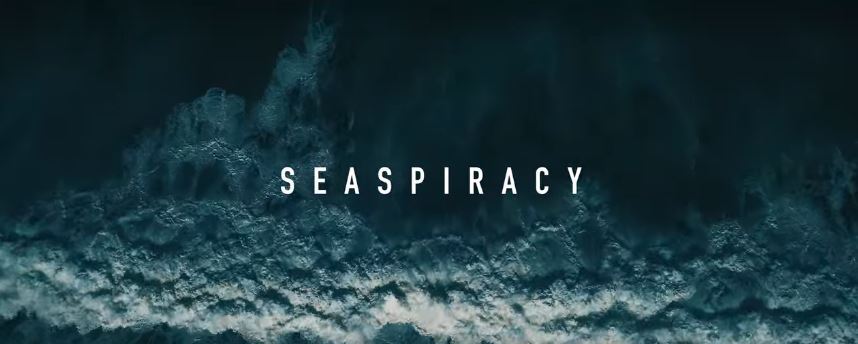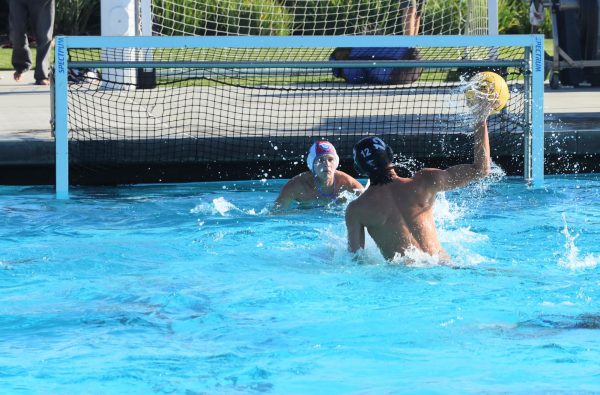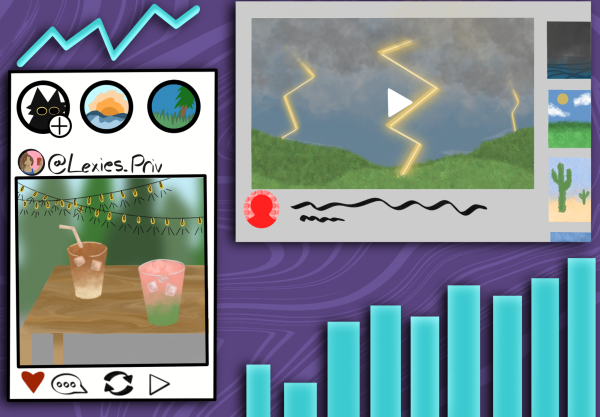“Seaspiracy”: Secrets of the Deep
Netflix documentary “Seaspiracy” shocks viewers with its newfound discoveries about the ocean. (Credit: thesun.co.uk)
April 30, 2021
A new documentary on Netflix called “Seaspiracy” has shocked viewers with its brutal facts and disclosed information regarding our ocean and the planet’s health. The director, Ali Tabrizi went out on dangerous expeditions to gather the information given in the film. Wanting to learn more about his beloved ocean and what lies within it, Tabrizi discovers some of the biggest secrets and threats beneath the surface of the sea.
In Seaspiracy, Tabrizi follows his curiosity and begins learning about plastic pollution, whaling and how they affect our planet. As we all know, “save the turtles” and the issue of plastic straws have recently been popular topics. Tabrizi dives deeper into the world of plastic use and ends up discovering more than he expected. The real evil behind global warming, extinction of animals and possible extinction of humans is commercial fishing.
According to Seaspiracy, if commercial fishing continues at the rate it is currently, we are predicted to have empty oceans by the year 2048. A few of the many reasons why commercial fishing is so detrimental to our planet are bycatch, carbon dioxide reduction and slavery. Bycatch refers to the animals that are caught in fishing nets that aren’t the targeted animal. 40% of the world’s catch is taken up by bycatch, which is mostly species like turtles, dolphins, sharks and seabirds. Without animals like sharks and dolphins, the food chain will get offset and all species will eventually die. Another reason why commercial fishing is killing our planet is because of the carbon dioxide it releases. You may think trees are the key to restoring our carbon dioxide balance, but 93% of the world’s CO2 is stored in the oceans. Marine plants store twenty times more carbon dioxide than trees in a rainforest, and fish stabilize our climate by holding carbon dioxide. 25 million acres of land deforestation occurs every year and 3.9 billion acres of seafloor deforestation occurs every year because of fishing nets scraping the seafloor. Clearly, this is an issue since there’s already too much CO2 from things like fossil fuels. Lastly, Tabrizi traveled to Thailand and discovered forced labor, or slavery happening on commercial fishing boats. Former crew members were interviewed and said they were splashed with boiling water if they became too tired to work, hit with metal pipes, threatened with guns and even saw other crewmates thrown overboard to die at sea. Although this doesn’t have much to do with the sea creatures, it shows how toxic and inhumane commercial fishing really is.
Companies like Marine Stewardship Council, Oceana and Earth Island Institute are mentioned in the documentary and only advertise to help plastic reduction from the ocean and make no mention of the larger issue – commercial fishing. This is because they are associated with fishers and seem to care less about the exploitation of these animals. Less than 1% of oceans are actually protected and less than 1% of pollution actually comes from plastic straws. Most of the labels on our seafood that claim “sustainability” are not guaranteed; 80% of the money these companies make comes from the labeling.
After hearing some of the awful things that are happening in our oceans, you are probably thinking, what can I do? In the documentary, Tabrizi and other experts suggest:
- Avoid eating marine animals
- “No take” or no-fishing zones must be established and enforced
- Governments must stop harmful subsidies
If everyone is informed and begins to take action, specialists say marine ecosystems can bounce back fairly quickly if given the opportunity. After watching this documentary, I am so much more aware of the real statistics and danger that quickly approaches us. If you want even more facts and secrets that go beneath the surface, I highly recommend watching Seaspiracy.
Seaspiracy has an 86% rating on Rotten Tomatoes, a 4.8/5 star rating on Google and an 8.5/10 on IMDb.















Kelsa R. • May 3, 2021 at 9:48 pm
Very well researched and well informed. I am definitely more aware and conscious about the impact that commercial fishing has on our world. Thanks kami!
Steve K • May 1, 2021 at 1:21 pm
Some very disturbing facts for all to consider.
It goes without saying: we can’t coexist on limited resources without cooperation, and there’s nowhere to turn when ecosystems begin to fail. I’ll be sure to watch Seaspriracy. Thanks Kami!